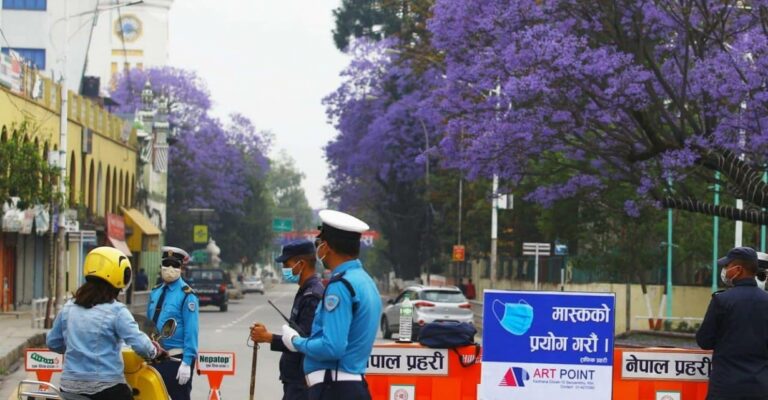
The Metropolitan Traffic Police Division (MTPD) has restarted its campaign against unnecessary honking in the Kathmandu Valley as the use of horns has increased alarmingly ever since the end of last year’s lockdown.
MTPD had enforced a ban on needless honking with effect from 14 April 2017 and taken action against thousands of motorists in subsequent days. The drive, however, has been ineffective in recent times.
MTPD in charge, SSP Janak Bhattarai, said the campaign was relaunched in the Valley by pasting 50,000 ‘no-horn’ stickers on the windshield of private and public four-wheelers.
“Unnecessary use of horn has increased in the Valley, adding to the already aggravated level of noise pollution. We are planning to bring to book any motorist who defies the no-horn rule as per the prevailing law,” he warned.
Section 164 (c) of the Motor Vehicle and Transport Management Act, 1993 imposes a ban on honking unnecessarily.
“No one shall blow horn in circumstances other than the invisibility of vehicles coming from the opposite direction or where there is a high chance of an accident if the horn is not blown,” the act states.
This provision must be complied with by public, private, tourist and government-owned vehicles, including both two-wheelers and four-wheelers.
Emergency vehicles, ambulances, fire engines and police vans/ jeeps shall not be obliged to follow the rule.
According to MTPD, the on-duty traffic cop may fine an offender with an amount up to Rs 500 if he/she is found blowing the horn without any valid reason.
Needless honking is a major contributing factor to noise pollution in the valley.
With the increasing number of vehicles and limited roads in the valley, the problem of traffic congestion, road accidents along with air and noise pollution have become serious issues. Noise pollution in commercial places, new and old residential areas and tourist spots of the valley exceed the Guidelines for Community Noise set by the World Health Organisation.
According to the recent Environmental Statistics of Nepal released by the Central Bureau of Statistics, most of the traffic areas exceed the limit or permissible level of 70 decibels (dB) for road traffic noise during the daytime.
The human ear can tolerate only 26 decibels of sound, says the WHO. Sound level exceeding 70 dB is detrimental to health and can cause headache, irritation, fatigue, restlessness, stress, distraction and sleep loss. Regular exposure to noise can cause hypertension, temporary or permanent hearing loss, stress and sleeplessness.






